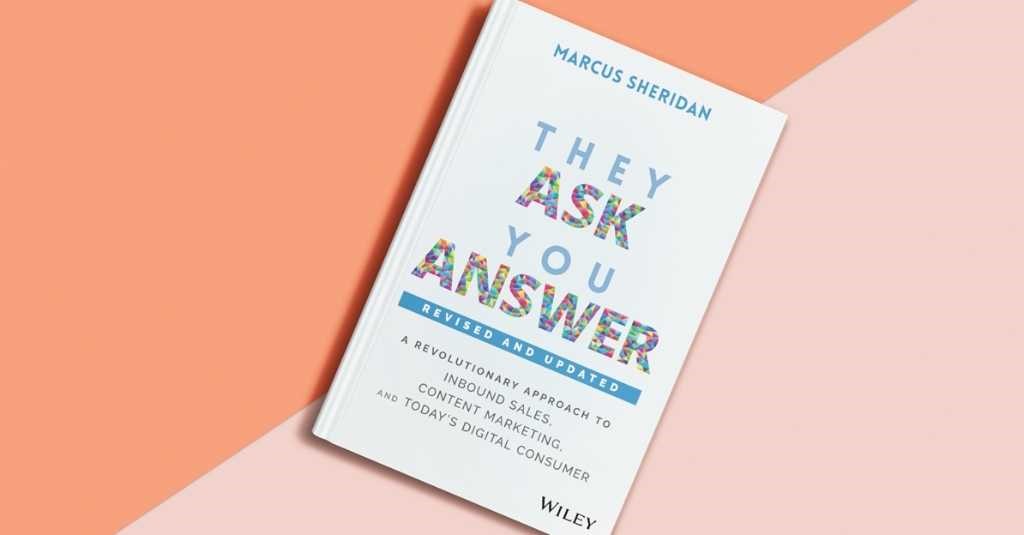There are many ways a sales professional can train to improve their skills and generate higher close rates, but in our experience the most effective training methods is also the most underutilised. That of course is conducting roleplays. In fact, we think it’s so important that it should be MANDATORY for EVERY sales professional. The question is why are roleplays important, and more specifically, how do you effectively conduct roleplays internally?
Lets face it. Sales is hard. There’s rejection. There’s objections. And there’s no guarantees. But sales is also really rewarding – especially with the right levels of confidence, skill-set and results.
But just like any skill, it must be trained. Reading books, doing video courses, and continuing to practice on real sales calls are of course all great ways to improve this skill. However, what trumps all of these is roleplay.
In this article, we’re going to cover:
The Benefit of Roleplays for Sales Professionals

Effective communication is undoubtedly built upon effective preparation. It’s odd, because communication doesn’t seem like something you can prepare for. Most people believe it’s a natural talent some people are born with but this is not necessarily true. Its dynamic nature forces us to question how and why we should even prepare for the daily occurrence that is communication.
Preparation is about being ready to utilise various communication skills in your conversations, and then using them to enhance the flow of the communication – to make you a better listener and the conversation a more interesting one. If we can approach preparation to communication in this fashion, then being authentic won’t be an issue, because this very conversational effect breeds authenticity.
Roleplays serve the purpose of having a conversation before the conversation happens. When we do this, and we practice our roleplays consistently, we create repetition, and this repetition breeds confidence, giving you the opportunity to be more authentic in sales calls and meetings.
The question I always ask a salesperson offering resistance to roleplays is: Do you want to fail (and then grow) amongst your peers or do you want to fail in the real world with potential customers?
On sales calls, we commonly will come across objections and receive a mix of positive and negative responses. This forces us to develop objection handling, talking points and more, in order to deal with future sales scenarios
Roleplays work in a similar way, giving us the opportunity to take these objections we hear and work new talking tracks that more effectively and efficiently. The difference is you learn at a much faster pace and you get the feedback of different perspectives in real-time.
The added confidence we gain from repetition allows us to perform better in our next sales call, which impacts our communication on the whole, since a large part of what we communicate is not necessarily what we say, but how we say it and our non-verbals.
To sum up, sales professionals (and pretty much everyone else as well) can gain the following benefits from roleplays:
- Improves your relationships across the board as communication improves
- Makes you a better listener and allows you to have more interesting conversations more often
- Fail in front of your peers, not actual customers
- Allows you to prepare for a future conversation
- Builds confidence which promotes authenticity in meetings and sales calls
- Allows sales professionals to move beyond the script and traverse the dynamic nature that some sales calls can be
Why Roleplays Get a Bad Reputation
Here are common complaints you will hear from someone who is not a fan of roleplays
- It was cheesy, there was joking, time was wasted
- It didn’t have real-world application
- It felt uncomfortable and wasn’t a safe space’
Generally, roleplays get a bad rep because they weren’t done effectively which boils down to a few common reasons.
First off, it’s common to walk into a roleplay with the wrong mindset. The very nature of a roleplay makes it easy to perceive it as a cheesy game, as opposed to a serious training exercise.
When people don’t take roleplays seriously, they end up walking into it with the wrong mindset, which transforms the experience from a potentially fantastic learning experience to a comedic experience which adds no real value to the members involved. People will sometimes use humour as a defence mechanism to avoid feeling vulnerable but this is absolutely the wrong mindset.
Salespeople need to walk into roleplays with the right mindset – that it is a serious training exercise to help you grow professionally and personally. Sure, you can have fun with it but not at the expense of making the roleplay as real as possible.
Secondly, many people who’ve had negative experiences with roleplays tend to say that their roleplay experience didn’t relate to their role or that they didn’t learn anything. To prevent this, the intention of the roleplay needs to be clear from the start. Who is the roleplay going to help? What specific historic or future conversation is this roleplaying enacting, and who are the parties involved in that conversation?
And finally, roleplays sometimes get a bad reputation because people may find it uncomfortable, awkward and attacked. In a non-psychologically safe environment, no one is going to learn anything. That’s why the key to avoiding this issue is to make the intention of psychological safety clear right from the beginning.
Let everyone know that it is a safe environment to make mistakes and that it’s all just a learning experience. When feedback is given, it needs to be constructive and specific.
How To Run an Effective Roleplay
In order to run an effective roleplay, we need to set conditions at the start of the roleplay. Setting the conditions means sharing with the group a series of conditions all participants will adhere to and respect in order for the roleplay to be good use of time.
There are four conditions we need to set:
- The Mindset Condition
- The Read-ahead Condition
- The Balance Condition
- The Psych Safety Condition
The Mindset Condition
The first condition that you must set with yourself and the other participating members is the mindset condition. This condition ensures that there is no sarcasm or joking around during the roleplays, and that the roleplay is taken seriously. In other words, this condition ensures that we treat the roleplay as if it were the real conversation happening in real time.
The Read Ahead Condition
The second condition is the Read Ahead Condition. A ‘Read Ahead’ is simply a background summary of the scenario roleplay participants are walking into. A simple paragraph and a few dot points can be enough and here’s where you can dive into your CRM and pull out real-life deals, scenarios, and client names to make the roleplay exponentially more valuable.
Having the Read Ahead ready ensures that all members of the roleplay prepare for their role. We should have background information about the prospect written down and both role players should review these notes prior to the meeting.
The Balance Condition
The third condition is to strike the perfect balance between being difficult and making it too easy for the opposing side. As the role player playing the prospect, we want to challenge the other person and make it a little difficult for them, but at the same time we want to be reasonable so the person playing sales can actually work through a scenario and learn from it. That’s not to say you shouldn’t setup a very difficult scenario, you should, but only after doing a couple more reasonable roleplays first.
In general, we shouldn’t be overly difficult for the sake of the roleplay, and we most definitely should not be too soft. Striking the perfect balance between these two sides is a part of this condition. Simply having the intention to strike this balance will aid us here.
The Psych Safety Condition
Finally, possibly the most simply and yet most important condition is to create a psychologically safe environment. Upfront, get everyone to understand if you’re not comfortable with feedback then the roleplay won’t be helpful. Feedback is the fruit of champions and everyone in a roleplay should be prepared to receive it. Getting feedback, even if you have been doing it for 10 years isn’t a bad thing, it’s about constantly improving and getting better because we all have blind spots.
Of course, as referenced above, feedback needs to be constructive and helpful. The participant should receive it in a way where they can work that feedback back in on another attempt.
So, what’s next?
Now that you understand the benefits of roleplays and the conditions to set for them, get started immediately! Even if you’re not a salesperson, this will aid you immensely.
While roleplaying is effective at improving your sales skills, sometimes it’s not the skills that make the most difference, but instead it is the underlying marketing and sales framework that changes everything. If you’d like to utilise an effective framework to increase your close rates and shorten the sales cycle, check out this article.












